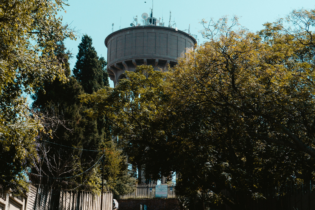The concept of the Water-Wise City, as outlined by the International Water Association (IWA), is a key initiative to assist cities to conserve this precious resource. What’s more, Water-Wise Cities are liveable, resilient, sustainable, and productive.
“It is all about diversifying and integrating the urban water cycle into the design of robust waterways, stormwater, groundwater, wastewater management, and water supply systems,” comments Neeren Govender (PrEng), Client Director, Water at Zutari. The IWA estimates that, out of an anticipated global population of 9.7 billion people by 2050, 66% will reside in urban areas. One out of five people are at risk from floods, while 40% of the world’s population is affected by water scarcity. South Africa itself is fast approaching physical water scarcity, with an anticipated water deficit of 17% by 2030 based on current usage trends, according to Dr. Hlamulo Makelane, Research Fellow at Nelson Mandela University. As a civil engineer with 20 years of experience in the water industry, Govender’s career spans a range of multidisciplinary water-related projects, from inception through to master-planning, design and construction supervision, and ultimately commissioning and operations. He adds that the natural environment itself is just as important as the end client. “The reason I am so passionate about this sector is the impact that we have on the communities we work with and the tangible difference we make on their quality of life.” Through legacy companies such as Africon and Ninham Shand, Zutari has a track record of almost 90 years in the water sector. This includes the Lesotho Highlands Water Project (LHWP), originally conceived by legacy company Ninham Shand in the 1950s. The firm was involved in the feasibility studies undertaken in the 1970s and in the design and construction of Phase I in the 1980s and 1990s. Zutari is currently involved in the design of the infrastructure for Phase ll of the LHWP, which remains the largest water transfer scheme in Africa. In terms of its capabilities and expertise, Zutari’s focus includes water resources planning and management, ranging from urban areas to multi-basin studies and also includes large dam and hydropower projects. Another speciality is bulk conveyance, collection and distribution for water waste- and stormwater in particular. On the treatment side, it is able to offer advanced process technologies for reuse and desalination, as well as for dirty or industrial water and biosolids treatment. On the advisory side, Zutari offers climate change and sustainability solutions which is a key focus for the water sector across Africa. “This definitely gives us a leading edge in the market. From an African perspective, we not only have an extensive network of offices and resources, but partners in various countries as well. This ensures we have a broad team of multidisciplinary water specialists that can apply their local knowledge and technical expertise on a range of projects throughout the continent,” elaborates Govender. In addition, Zutari has extensive international experience as far afield as Australia, New Zealand and South East Asia. The impact of smart infrastructure on the water sector has led Zutari to develop cutting-edge digital capabilities that embrace the Internet of Things and Industry 4.0. “We have a lot of experience in working with the latest industrial automation and instrumentation technologies, which we deploy for infrastructure performance improvement and real-time visibility.” Zutari has a number of innovative data-mining tools for advanced analytics to assist clients with strategic decision-making and long-term planning. These include a smart data-mining platform for improved visibility of critical data.“One challenge is that our clients often do not have access to their own data. Our tools also allow for accurate tracking as well as improved asset performance and efficiency,” adds Govender.
The Digital Twin One of the latest innovations from Zutari is applying the operational Digital Twin concept to water infrastructure. For example, if a water system needs to be improved, the impact of any changes can be visualised in the digital replica to best optimise the process and carry any lessons or insights through to the real world. Zutari has also developed energy recovery tools that can assist water utilities to not only optimise their energy consumption, but also evaluate the feasibility of waste-to-energy projects, where the energy potential of wastewater can be converted into biogas, for example. While such technology pushes the envelope in the water sector, a major issue confronting South Africa is ageing infrastructure. “Our biggest challenge is the lack of proactive maintenance. This is linked to a lack of finance, which is why we are starting to see alternative finance models for refurbishing and upgrading essential infrastructure as well as new infrastructure,” notes Govender. This includes Public Private Partnerships (PPPs) or blended finance initiatives such as the government’s mooted R100 billion Infrastructure Fund. Public Private Partnerships Governments across Africa are beginning to accelerate public-private collaboration as they grapple with increased urbanisation and a lack of basic infrastructure. “We are also seeing more investment in asset life extension. I think we are going to see this increase in the water sector, especially as the financial constraints impacting on effective operations and maintenance slowly ease,” predicts Govender. Burgeoning urban populations and uncertainty surrounding climate change represents a significant challenge for the water sector. “Water is the source of life, the most widely-used resource, and a commodity with intrinsic value. Our collective future depends on its sustainable use and preserving water resources. As water stewards, we need to focus on smart, sustainable and resilient water infrastructure solutions,” points out Govender. “We really need to think differently about the future of water. Our goal as Zutari is to co-create a footprint of engineered water solutions that reframe innovation, sustainability and resilience from an African perspective. We cannot adopt solutions from the US or Europe without taking our local context into account. Zutari continues to embrace the spirit of innovation in its role as thought leader to improve water security across Africa for future generations,” concludes Govender.






